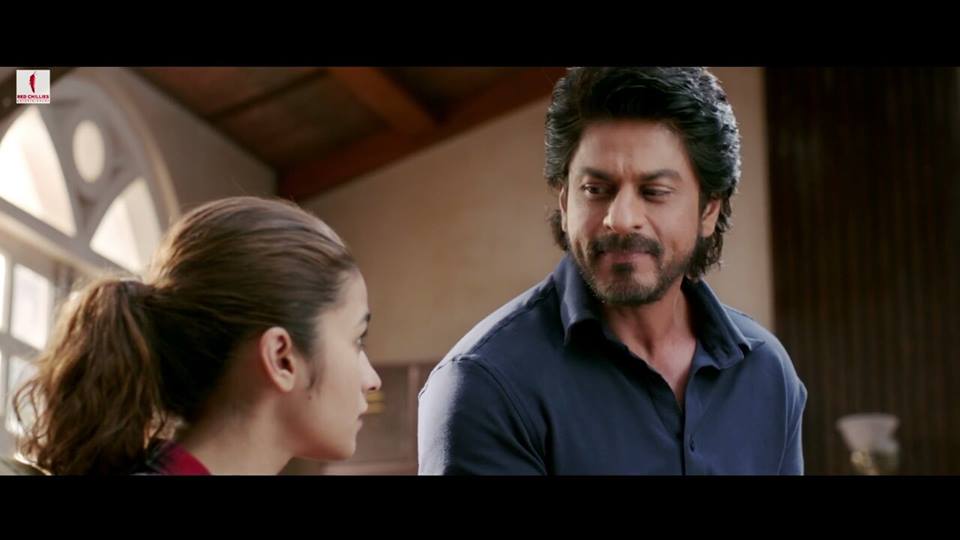‘Dear Zindagi’ Challenges You to Look at Mental Illness Differently
In Dear Zindagi, Kaira is a fully-functioning human being. The film doesn’t throw around medical terms to address her problems. She is anxious but doesn’t seem to suffer from anxiety; she is sad but it is not labelled as depression.

Superficially speaking, there is not much that sets Gauri Shinde’s Dear Zindagi apart from other commercial Indian films. It is, after all, a typical feel-good romper featuring preternaturally good-looking leads, a serendipitous meet between a girl and a boy, and a subsequent relationship that acts as a catalyst for the rest of the story.
The only difference between this film and a film like Ek Main Aur Ek Tu, is that the lead seeks out therapy rather than romance or even friendship to fix her problems.

Kaira, played by Alia Bhatt, is a unique woman by Bollywood standards. She is ambitious and career-driven (which is refreshing because most of us are still scratching our heads trying to figure out exactly what Anushka Sharma’s character did for a living in Ae Dil Hain Mushkil), and finds purpose and enjoyment in her job. She has a tight group of friends she loves and she is financially stable. Her main problems are that she sabotages her own romantic relationships and has a complicated equation with her family based in Goa.
You may also like: Dear Zindagi: 5 Bollywood ‘Slice of Life’ Movies That Gave Us Something to Think About
After one romantic liaison implodes spectacularly (and with it taking away the opportunity to work on a dream assignment), Kaira packs her bags and heads home to figure out the next move in life. Disturbed and unable to sleep, she makes the proactive decision to seek help from Jugs (Shahrukh Khan, in a surprisingly restrained portrayal), a therapist with an unorthodox approach to therapy.
This isn’t the first time mental illness has been addressed in Indian cinema. In Bhool Bhulaiya, Vidya Balan’s character has dissociative identity disorder but structurally the movie is a supernatural horror film than an understanding of a real illness that is treatable (and the treatment is so completely out of the box that it probably had therapists hyperventilating in laughter). In the Tamil film 3, Dhanush’s character is bipolar but the film is a thriller with little insight into the problems of those who are bipolar and the ending is disappointing and disheartening.
In Dear Zindagi, Kaira is a fully-functioning human being.

The film doesn’t throw around medical terms to address her problems. She is anxious but doesn’t seem to suffer from anxiety; she is sad but it is not labelled as depression. She has a tragic past that bellies her youthful exuberance but it does not paralyse her life. She is a woman who has seemingly hit rock bottom and wants to get the tools needed to address problems that life might throw at her in the future. It is that simple. She needs help and she seeks it the best way she can.
But that isn’t to say that the film is in any way realistic. Most who have been to therapy would attest to the fact that most therapists don’t teach you to play kabaddi with the ocean or take you bike riding through the picturesque streets of Goa or even pitch in for a ferry ride. Going to therapy is at times revelatory, at times awkward and most times just like any other visit to the doctor. There is a clear doctor-patient equation established and therapists rarely spout out fortune cookie advice.
Depending on the disorder or illness, therapy is about figuring out medication, discussions about safe spaces, figuring out calming techniques, triggers, and yes, homework.

The audience would certainly be forgiven for rolling their eyes when Jugs doles out incredibly corny advice to Kaira that wouldn’t be out of place in a Paulo Coelho book (given that he charges her Rs 3,000 per session, one could rightly claim that she gets stiffed big time).
However, at the end of the day, the movie can be and should be forgiven for all the wish-fulfillment it proffers upon the audience for one simple reason – it argues that those who seek professional help to get mentally fit are not “nut cases”. In the average Indian household, any member going through a mentally stressful time is given a plethora of advice (ranging from diet to exercise to even prayer) that has nothing to do with therapy. There is a deep-seated fear of being labelled “mental” or weak-willed that results in millions suffering in silence.
You may also like: VIDEO: Watching Aamir Khan Going from 97 Kgs to a Six-pack for Dangal is not for the Faint-hearted
Refreshingly, Dear Zindagi argues that just every other physical ailment like fever, your mind needs a tune up from time to time and there is no shame in asking for help. And just like that, it rises above white noise. It becomes radical and revolutionary.
All pictures: Facebook
Like this story? Or have something to share? Write to us: [email protected], or connect with us on Facebook and Twitter (@thebetterindia).
This story made me
- 97
- 121
- 89
- 167
Tell Us More
We bring stories straight from the heart of India, to inspire millions and create a wave of impact. Our positive movement is growing bigger everyday, and we would love for you to join it.
Please contribute whatever you can, every little penny helps our team in bringing you more stories that support dreams and spread hope.



















